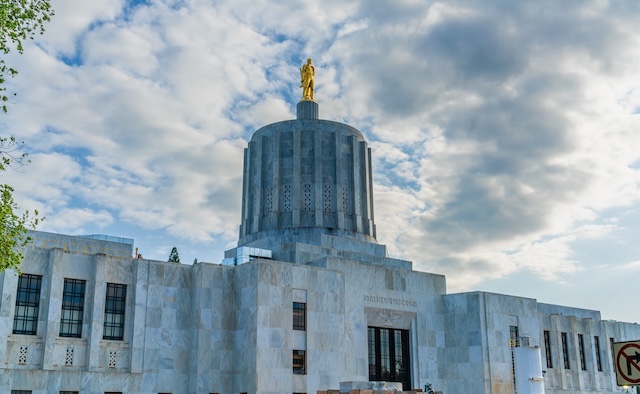Editorial: Top 10 reasons why there is no Oregon transportation package
Published 11:47 am Tuesday, July 1, 2025

- Legislators were not able to come up with a transportation funding fix. (123RF)
1. Oregon passed the nation’s first gas tax in 1919. It made such good sense that other states followed. But passing new taxes or fees have never been popular with the taxed.
2. The Oregon Department of Transportation said it needed an additional $1.8 billion to keep pace with the state’s needs for maintenance and more. ODOT could tell Oregonians how it came up with such a big number. Who wants to spend the time to learn why, maybe, they should be taxed more?
3. ODOT confessed to lawmakers and Oregonians that it made a colossal error. “Travis Brouwer, ODOT’s assistant director and top finance official, told lawmakers how the agency made a more than $1 billion error in its 2023-25 budget,” as Willamette Week explained in February. Basically, ODOT miscalculated when it was getting federal money. Confessing to legislators and the public that a big mistake was made was the right thing to do. When you might be needing legislators and the public to support increased fees, it’s going to make it tougher.
Trending
4. ODOT faced a credibility issue with cost estimates. In May, updated cost estimates for the I-5 Rose Quarter Improvement Project went up to $1.96 billion-$2.08 billion from $1.5 billion-$1.9 billion, as OPB reported. Estimates are estimates. Big projects can mean big mistakes. ODOT is not the first government or private entity to be off on a project’s cost. If you want legislators and the public to support giving ODOT more, though, that also makes it tougher.
5. The options at the disposal for legislators to raise more money for the state’s transportation needs were never secret: Raise the gas tax. Insist people who drive pay by the miles driven. Raise various fees, such as vehicle registration. Create new fees on car sales or deliveries. Index increases to inflation. When the transportation package arrived, it was a mix of most of that. It didn’t arrive, though, until June 9. That was a few weeks before the session must end. That didn’t leave much time for negotiations that could get tricky – and did get tricky. Transportation funding wasn’t the only issue before legislators.
6. Republicans proposed a transportation funding alternative with no new taxes or fees. Their plan, in part, would have redirected money for climate initiatives toward fixing roads. It proposed cuts to bicycling and pedestrian programs and social equity and civil rights initiatives. It looked more like a “See, we have a plan too” than something that Republicans would expect Democrats to seriously consider. But a plan without new taxes and fees is pretty much what you would expect Republicans to propose. It’s an alluring message, no matter what the circumstances are.
7. In the session’s final hours, Democrats slimmed down their request for more transportation money in a transportation bill. The state’s 40-cents-a-gallon gas tax was only going to go up by 3 cents, not 12 cents or more. Democrats struggled in their own party for enough votes for passage. Republicans wouldn’t allow a procedural move to let the bill come to a vote. Legislators adjourned.
8. Gov. Tina Kotek said on Saturday that maybe transportation issues have grown so unwieldy that the Legislature can’t wrap it up in a big bill every several years, as it has done in the past. Legislators need to be addressing it every session, she suggested. More talking more often doesn’t make problems go away. It can make it easier to find solutions.
9. It’s time to say goodbye to the gas tax. You know why. Cars are more fuel efficient. Some cars don’t use gas. Many Oregonians aren’t going to like it when they are told they need to start paying by the mile and — directly or indirectly – the state is going to be tracking how far they drive. Most Oregonians will get it. It still does make it harder to pass a state transportation package.
Trending
10. Governing is not easy for the governors, nor the governed.







